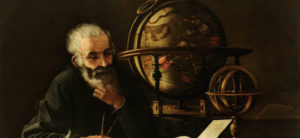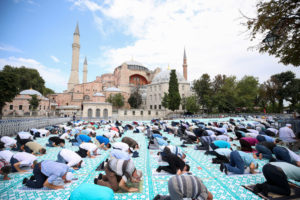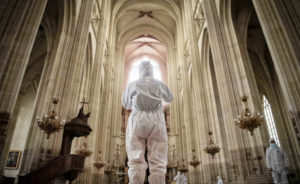Education, writes Roberto Calasso in The Ruin of Kasch, comes with a paradox: “it consists above all of things that cannot be learned — or of things that represent what cannot be learned.” Calasso drops the remark almost in passing, and without much further explanation. While he himself was an eminent product of the Italian system of humanist education (still one of the best anywhere), and lectured at major universities around the world, throughout his life Calasso held a fundamental distrust towards the university as an institution. He would advise youth of intellectual promise not to go to university, because “a sterile academic imprint could be dangerous to the more open-minded”. While formal education may play a role in formulating the big questions, it is unable to answer them. Indeed, these questions are of such a nature that we cannot learn their answers from someone else; we need to discover them within ourselves.
For about 40 years, between the early Eighties and his death in 2021, Roberto Calasso produced a body of bewilderingly interdisciplinary work combing such fields as literary studies, political theory, religion, anthropology, philosophy, and art history, and dedicated to topics as diverse as Kafka, Tiepolo, Baudelaire, the French Revolution and the Bible, not to mention the Indian, Greek, and Sumerian mythologies. One wonders if there is anything Calasso did not write or know abundantly about. The result is a series of over a dozen closely interrelated books, starting with The Ruin of Kasch (1983) and ending with Under the Eyes of the Angel, which he was still working on when he died and was published in 2022. When the former came out, Italo Calvino, in an attempt to summarise it, observed that the book was about two main subjects: the first was the French diplomat and politician Charles-Maurice de Talleyrand-Périgord, and the second, tutto il resto (“everything else”). Calvino failed in his attempt, then, but he does get his point across succinctly: that it is almost impossible to state what exactly the book is about. And that has been the case with most of Calasso’s work ever since.
Nevertheless, whatever they may focus on, Calasso’s books very often revolve around one central topic: sacrifice. For him, sacrifice is what ties humans to the gods, what brings order into the world and meaning into our lives. In the many mythological traditions that he explores, the cosmos — and the humans within it — came into existence through a primordial sacrificial gesture. That act needs to be constantly re-enacted, through ritual and ceremonies, for the ties between Earth and Heaven to be maintained. Christians partake in such a ritual every time they attend Mass.
Yet for Calasso, sacrifice is not only religious. Indeed, before being a religious event or sacramental practice, sacrifice is life at its most fundamental. In an illuminating interview for The Paris Review, Calasso sketches a philosophy of sacrifice that casts a helpful light on some of the main arguments of his work. The fact is, observes Calasso, that we have “a surplus of energy” which we have to “dispose of”. It all starts with that excess.
“That surplus is simply life. There is no life without surplus. Whatever one does with that surplus, that decides the shape of a culture, of a life, of a mind. There were certain cultures that decided they had to offer it in some way. It is not clear to whom, why, and how, but that was the idea.”
Calasso’s books act as so many signposts on one’s way to the kind of true knowledge that formal education promises but cannot provide — knowledge that will eventually redeem us. That road is long, solitary, and arduous because we are so remote from where we should be. (If this sounds Gnostic, that’s because it probably is.) The problem with our secularised world is that, while sacrifice lies at the heart of life itself, we are no longer willing to accept it. In an age where everything is done for a clear reason, or for certain profit, sacrifice as a supremely gratuitous act has become “entirely useless and obsolete”.
And yet, suggests Calasso, since such acts “have gone on for hundreds of thousands of years and have thus left their traces in our minds”, ignoring them comes at a price. Deprived of the deeper significance of sacrifice, we can no longer make sense of a series of fundamental human experiences: of loss and grief, of transience and impermanence, of our fundamental precariousness and finitude, and in general of all that makes us what we are. In the ancient kingdom of Kasch, when people stop making sacrifices and following rituals, it seems to make their lives easier, but certain ruin follows.
In The Unnameable Present, another important piece of his multi-volume project, Calasso describes the contemporary secularised society as one largely relieved of religious duties and rituals, and yet eaten up by the sense of its own insubstantiality, by spiritual disorientation, and a lack of clear purpose. For all their religious emancipation, “the secularists are not happy”, he observes. “Nor do they feel relieved of great burdens. They feel the insubstantiality of all that surrounds them. At times they recognise something ominous in it… The same insubstantiality exists in they themselves.” The fact that we no longer follow explicitly religious rituals does not mean that we don’t practice other, disguised rituals. “Tacitly, though firmly, the secular brain has resigned itself to thinking that it cannot do without repeated and rigidly formalised acts,” writes Calasso. “Secular life is increasingly interspersed with situations that must involve behaving in a certain way.” We are religious without knowing it. Which is not without its irony, considering how anti-religious we usually think we are.
Calasso wants to do something about this situation. In his books, he seeks to “unearth”, as he put it, the deeper significance of sacrifice and to show that we have much to gain — spiritually, intellectually, culturally — from a renewed relationship with it. His monumental body of work is meant to teach us a novel way of approaching the world by giving the unknown and the mysterious — all that which transcends us — their due. Such humility should do us some good. He writes:
“In the act of sacrifice, you establish a relation with something that you recognise as enigmatic and powerful… The unknown itself is in our own mind as well — our mind is in its largest part totally unknown to us. Therefore, it is not only a relation to the exterior world, it is a relation to ourselves.”
Key to Calasso’s programme of re-enchanting the world is a better relationship to myth. As he says in another interview, “myths are a special way of knowledge” — one that’s based not in argument, scientific methodology or empirical evidence, but in stories, storytelling and, in general, in a narrative mode of making sense of the world. “Knowledge is made not only with concepts, not only with experiments, it’s made with stories.” In a godless world like ours, only storytelling, as a reflection of myth, can reconnect us not only to the gods, but to our deeper selves.
Not only does Calasso operate primarily as a storyteller, regardless of what he writes about, but much of his work is also a re-telling of the great mythical narratives of the past. That’s what writing is all about; as he puts it in the same interview, “literature is, from the beginning, re-telling”. In The Marriage of Cadmus and Harmony, he retells the Greek myths, in Ka and Ardor, the Indian ones, and in The Book of All Books, he re-tells much of the Bible.
And that’s where The Tablet of Destinies, the last book-length work Calasso published in his lifetime, comes in. Calasso re-tells here some of the Sumerian myths we know from other sources (such as The Epic of Gilgamesh), but with some twists. “Shortly before the Flood, I was king of Shuruppak. It wasn’t the centre of the world, but it wasn’t far off.” That’s how the narrator, Utnapishtim, introduces himself. The god Ea entrusted him with the mission of building a ship that would allow the human race to survive the Flood. The Mesopotamian Noah dutifully obliges and escapes not just the Flood, but somehow death itself. He now lives, in a perpetual present, in a deserted place called Dilmun, from where he observes, with ironical detachment, the unfolding of the human and godly affairs. That’s how he met Gilgamesh, as he was desperately seeking immortality: “I was the one who would have to explain to Gilgamesh that his adventures were to no avail. Man is as fleeting as a dragonfly that flits for a day over the waters of the Euphrates and is gone.” And that’s also how he meets Sindbad the Sailor, of Arabian Nights fame (anything is possible in the timelessness of storytelling), to whom he recounts the story that is the object of The Tablet of Destinies.
Like any great mythical narrative worth its salt, the story starts with — and the world it brings into being relies on — a series of sacrificial events: “Apsu was killed by his son Ea. Then Tiamat by Ea’s son Marduk. The world continued to be made up of their measureless bodies, from the fresh subterranean waters to the vault of the havens, Tiamat’s back, which Ea neatly flattened out and studded with stars.” This is a cosmogonic story, about how the world came into being, but also the story of its gradual disenchantment. The tamer the gods become, the emptier the cosmos. Eventually, the gods withdraw altogether. After Marduk, Utnapishtim says, “all other gods ceased to appear, as if they had become extinct, or killed one another off”. But if you think humans miss the gods, you are wrong. “Living without gods, people found, was not only acceptable, but easy.”
Rooted in Sumerian mythology, The Tablet of Destinies is about prehistorical happenings, or even about worlds that did not come to pass. From time to time, however, we are jolted when we realise that Utnapishtim is describing us. As when he talks of the withdrawal of the gods, and what the world is like without them. “When they do reappear, very likely no one notices. For some they have become an object of curiosity. Chance, on the other hand, is now dominant, it is worshiped. And is no less inflexible. It does no one any favours. This is all that I have been given to see.” The story that Calasso, through Utnapishtim’s mouth, tells us here, then, is also our own story — from enchanted, if bloody beginnings, to a disenchanted and awfully bland end.
Unlike other books in his multi-volume corpus, in which Calasso routinely engages with specialist scholarship and unfolds complicated theoretical trappings, The Tablet of Destinies is a slim and straightforward work. Pure, unadulterated narrative, it draws a straight line between storytelling and keeping the world in continuous existence. One day Utnapishtim realises that his compulsive narration was the reason why the gods kept him immortal. They “had wanted this; they had arranged it all”. The gods needed “a voice to tell the stories that had happened before the Flood. And I was the only one still alive. I had been part of those stories, or they had been told to me”.
Roberto Calasso is certainly one of the great unappreciated minds of our time, but beyond the strictly intellectual worth of his work, which is considerable, we detect here a heightened spiritual sensitivity that allows him to sense, like few others, the great dangers lurking beneath the joyous surface of our time: self-idolatry and self-deception on a planetary scale, doubled by the sense of our own insubstantiality, a great propensity for inessential and boundless vanity, as well as a fundamental inability to place ourselves within a larger frame of reference. There is indeed something of the doomed prophet about Calasso. In a conversation with his translator, Tim Parks, he speaks at one point of a “terror of election”, of one’s designation for a higher mission as “gift and condemnation” at once. He must have known something about this terror from personal experience. He must have known, too, how important doomed prophets are when “time is out of joint”, as it seems to be now. Not necessarily as teachers, but because the incandescence of their sacrifice may bring, at last, some light into our lives.
Disclaimer
Some of the posts we share are controversial and we do not necessarily agree with them in the whole extend. Sometimes we agree with the content or part of it but we do not agree with the narration or language. Nevertheless we find them somehow interesting, valuable and/or informative or we share them, because we strongly believe in freedom of speech, free press and journalism. We strongly encourage you to have a critical approach to all the content, do your own research and analysis to build your own opinion.
We would be glad to have your feedback.
Source: UnHerd Read the original article here: https://unherd.com/




